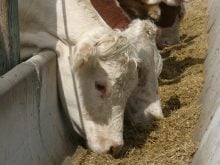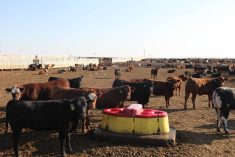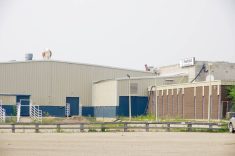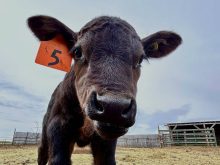Earls Restaurants is making no apologies to Canadian beef producers for its decision to switch to a certified humanely raised and antibiotic free product from the United States.
“Though I understand the job of the Alberta beef lobbyists is to lobby for their product, it seems unfortunate that they are distorting what is really good news for animal welfare,” said company spokesperson Cate Simpson in an email from the company head office in Vancouver.
“It’s their job to push that part of the story, but it’s everyone’s job to look after the welfare of animals and the food we eat,” she said. The Canadian company has 66 locations across the country and is already serving beef imported from the United States, she said.
Read Also

Canadian Food Inspection Agency extends chronic wasting disease control program consultation deadline
Date extended for consultation period of changes to CWD program
The program, called 100% Consciously Sourced, Certified Humane is being promoted as a tastier product and country of origin should not matter.
The beef is derived from Creekstone Farms at Arkansas City, Kansas, which offers U.S. department of agriculture certified beef in several different formats including certified humane and Black Angus beef.
Simpson said the company tried to work with Aspen Ridge Premium Beef in Alberta but it could not provide the volume required. Earls’ needs about two million pounds of beef a year.
“In the future, should the volume of beef we source in Canada move to Certified Humane, raised without antibiotics, steroids or growth hormones, we will absolutely revisit our suppliers,”she wrote.
The Canadian Cattlemen’s Association said it did not know the chain was going in this direction.
“We are making efforts to move towards being able to provide specific attributes that end users want, not just one size fits all by any means. We are a little disappointed that these keep jumping out ahead and not give us a chance to see what we can do,” said association spokesman Rob McNabb.
Earls is not a member of the Canadian Round Table on Sustainable Beef where members are working toward providing a set of attributes for end users.
“Had they been involved there we would have had some forewarning,” he said.
Round table spokesperson Fawn Jackson said the multi-stakeholder group has reached out to include them in the Canadian discussion about producing beef sustainably.
Contact barbara.duckworth@producer.com
















